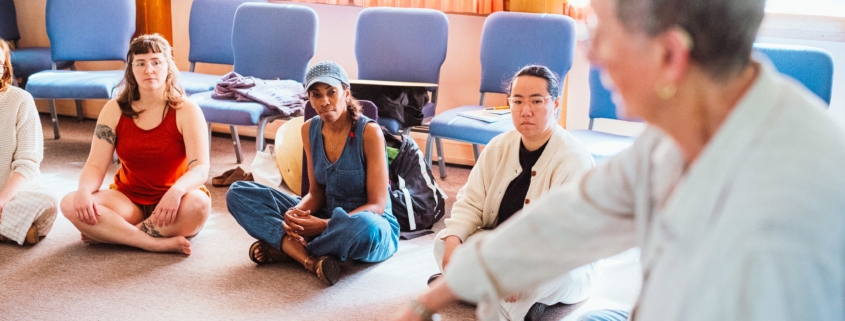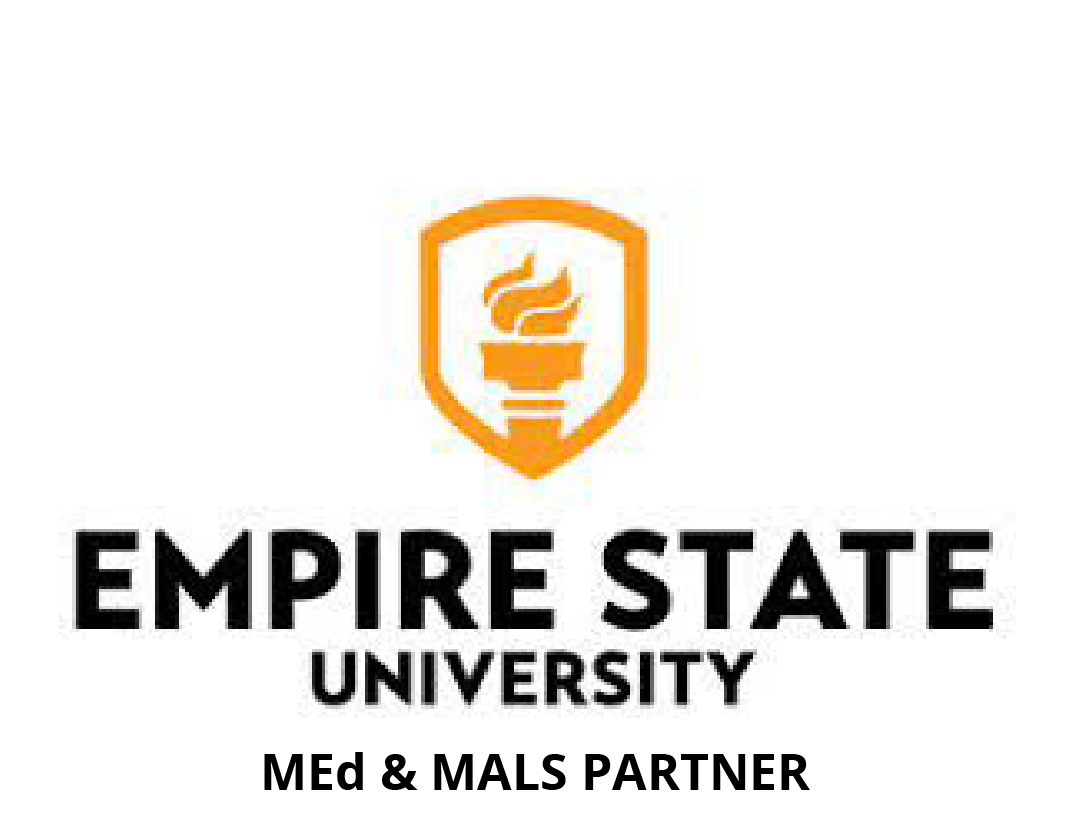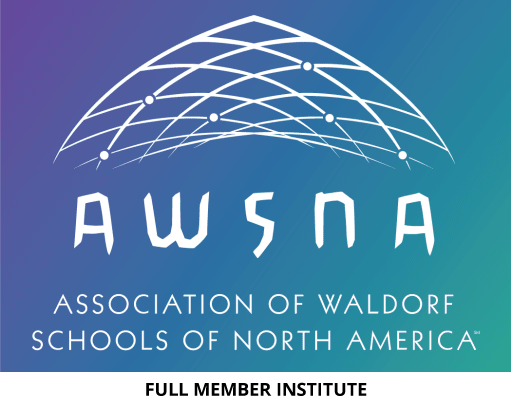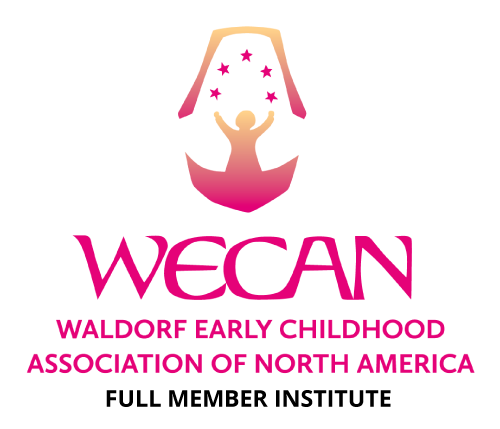
An online workshop series for Waldorf early childhood and early grades teachers consisting of six two-hour Saturday sessions occurring from October through April
Background
Waldorf education works with a picture of twelve senses. Mainstream research validates nine. Both streams include senses that tell us about our internal state, senses that tell us about the external world, and senses that we use in social interactions. The goal is that the senses will work together, which is described as “sensory integration.” When there is disruption, children will show their distress through perplexing and often challenging physical and social behaviors.
In this 6-part workshop series, Sunbridge’s Early Childhood Teacher Education program co-director Nancy Blanning serves as guide for an exploration into sensory development, focusing on how the two streams of Waldorf education and mainstream research complement and confirm each other, and how we can use this knowledge to better help the children in our care.
Workshop Description
The content of our sessions will concentrate on the body’s senses of touch, life/well-being, self-movement, and balance as foundation for physical, academic, emotional and social development to come. We will consider the gifts each sense brings to the child as well as what can be seen when the sense are not serving the child well. Our main focus will be in how to encourage typical development in general and to respond in supportive action to distressed sensing. We will look at how understanding of the senses can guide how we respond to and support children whose sensing systems and neurology are different. We will also bring consideration of neurodiversity in studying each of these basic senses. We want to become conversant and comfortable with mainstream vocabulary and picturing of the senses. Doing so will give us mainstream recognition when we interact with caregivers and mainstream therapeutic support professionals.
Who Will Benefit From This Workshop
Designed for early childhood educators, grades 1-3 teachers, and others interested in deepening their understanding of how children grow into the world, this series is both open to new participants and will serve as a review, deepening, and extension of last year’s series for returning attendees. In addition to studying each of the four foundational senses in depth, we will also consider in each session how various expressions of neurodiversity have accompanying extreme responses to the world surrounding them. We will consider the support already inherent in the Waldorf early childhood classroom that we can more consciously and deliberately engage to all children’s benefit.
Our goals professionally will be to:
- Objectively observe and describe what we see
- Understand what we see
- Respond–what can we do both proactively and in the moment?
- Talk about it to caregivers, colleagues and mainstream support professionals in ways that build connection
Our goals personally will be to open up an objective understanding and appreciation to these children’s unique experiences in life. This study does not offer quick and easy answers. Our collective interest and desire to assist—not “fix”—the child will open up possibilities for new inspiration.
Session Topics
Each two-hour session will include Waldorf and mainstream description and vocabulary for each sense. Neurodiverse situations and the sense will be considered. Appropriate vocabulary will be presented and ideas offered for communicating observations and questions to build connection of trust with the child’s parents / caregivers.
October 18: The Landscape of the Senses—How does each sense help us live in the body, in the external world, and in the social world with other people? We will look at how we support the Life Sense/Interoception to assure comfort and a sense of security in the body. Here we will recognize the strength of the Waldorf early childhood “curriculum” of rhythm, routine, movement, practical work, and artistic activities in helping to regulate sensory functioning.
November 22: Tactile/Touch Sense—Exploring hyper (extra reactive) and hypo (under reactive) responses as extreme edges of sensing touch. How do we recognize these and respond to these extremes? We will also consider some movement and touching games that invite reluctant children to participate.
January 10: Proprioceptive/Self-movement (Limbs, muscles, nerves, and body-geography)—Exploring the balanced and extreme edges as shown in behavior. How can we offer invitation to strengthening this sense? In-door and out-door possibilities will be suggested. In this session we will also give a brief overview of retained immature movement patterns (infantile reflexes) that often interfere with proprioception.
February 28: Vestibular/Balance—Orientation and security of the body in the three planes of space. How can we offer enriched opportunities to strengthen balance? Balance and proprioception are partners in supporting each other, so we will look at the two together. Continued consideration of retained movement patterns will continue.
March 7: Communicating with Others—What do we wish to communicate to parents and caregivers? How can we do this in ways that build trust and connection?
April 18: Review and Festival of Movement Idea—We will consider a particular scenario of a child in sensory distress and together apply the ideas our study has suggested–and create new ones as well.
Facilitator
 Nancy Blanning has co-directed Sunbridge’s Early Childhood Teacher Education program since 2015 and has served on its faculty since 1994. Now retired from a nearly forty-year career at The Denver Waldorf School, where she served as a kindergarten teacher and member of the educational support staff, Nancy’s main focus is therapeutic education with a special emphasis on developmental movement as supporting young children’s physical incarnation and sensory development.
Nancy Blanning has co-directed Sunbridge’s Early Childhood Teacher Education program since 2015 and has served on its faculty since 1994. Now retired from a nearly forty-year career at The Denver Waldorf School, where she served as a kindergarten teacher and member of the educational support staff, Nancy’s main focus is therapeutic education with a special emphasis on developmental movement as supporting young children’s physical incarnation and sensory development.
Nancy is a frequent keynote speaker and presenter at national and international early childhood conferences and workshops and is a faculty member for Denver’s Nurturing the Roots Therapeutic Course. Her writing credits include serving as contributor and editor of Gateways (the publication of WECAN), contributor to You’re Not the Boss of Me (a WECAN publication), editor of WECAN’s First Grade Readiness; and co-author, with Laurie Clark, of Movement Journeys and Circle Adventures, a collection of original movement imaginations for the classroom. Nancy holds a BA in English from the University of Colorado, with teaching credentials. She also earned a certificate as Extra Lesson provider and therapeutic educator from Gradalis Seminars, where she attended the four-year anthroposophical therapeutic/remedial training in Extra Lesson and supplementary therapies and academic support strategies.
Praise From Past Participants
Prerequisite
This workshop series is taught with the understanding that participants have a basic familiarity with the twelve senses as described in Waldorf education. Required reading preparation is the WECAN publication, Nurturing the Senses: The Importance of Authentic Sensory Experiences in Early Childhood, which can be purchased for $10.00 from WECAN’s online store.
Additional recommended reading includes:
- Willi Aeppli’s Care and Development of the Human Senses
- Sharifa Oppenheimer’s With Stars in Their Eyes
- Sally Goddard Blythe, The Well-Balanced Child
Titles are available from online booksellers. The first two are carried by Steinerbooks.com
Schedule
Sessions take place over Zoom from 1:30 pm–3:30 pm Eastern Time on the following Saturdays:
October 18 / November 22 / January 10 / February 28 / March 7 / April 18
Sessions will not be recorded.
Cost
$460 includes a $25 non-refundable registration fee
Note: This workshop is presented as a series; individual sessions may not be signed up for separately. Refunds will not be issued for sessions not attended. See registration form for full refund policy.
Available Discounts
25% off for:
- Schools sending 2 or more participants
- Sunbridge teacher education program graduates
- Payments made in Canadian dollars
Discounts may not be combined. Qualification for discounts will be verified by Sunbridge staff.
Free for current Sunbridge program students in good standing (plus a $25 non-refundable registration fee)
Registrants who sign up for both Deepening the Picture of the Whole Child as well as EC Insights, our workshop series held earlier in the day on the same Saturday dates, will receive a discounted price of $690 for both. Participants choosing this option may not apply any other discount.
If you are a Sunbridge Early Childhood program student and wish to attend this workshop, please contact Nancy for information before registering.
Questions?
Please contact Barbara Vitale, admissions and summer coordinator, at [email protected] or 845-425-0055 x20
We reserve the right to make faculty substitutions when necessary. See registration form for refund policy.
Sunbridge is a New York State Education Department Approved Sponsor of Continuing Teacher and Leader Education (NYSED CTLE), enabling teachers of any background to choose Sunbridge for their CLTE/CEU professional development credits. Check to see if your state honors our status.




